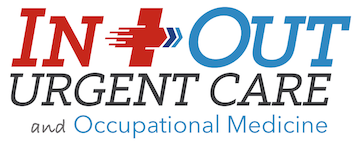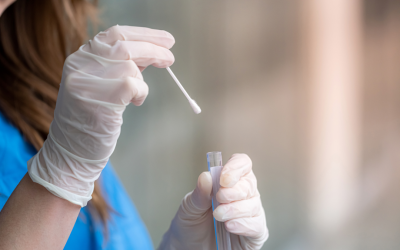Dehydration is a prevalent health issue that can significantly impact a person’s well-being, particularly during warm weather, illness, or physical activity. Dehydration occurs when the body loses more fluid than it takes in, leading to a wide range of symptoms and health concerns.
In and Out Urgent Care, with locations in New Orleans and North Shore, offers personable, affordable, and convenient care for patients experiencing non-life-threatening dehydration-related conditions.
By providing expert guidance and appropriate treatment options, their team of healthcare professionals aims to help patients maintain optimal hydration levels and support overall health and wellness.
In this informative blog post, we will discuss the causes and symptoms of dehydration, share essential tips for maintaining proper hydration, and showcase the services available at In and Out Urgent Care for managing and treating dehydration-related health concerns.
Our primary objective is to empower readers with valuable knowledge to help them understand the significance of water intake, identify and address dehydration, and benefit from the valuable care provided by In and Out Urgent Care.
Identifying the Causes and Symptoms of Dehydration
Several factors can contribute to dehydration, ranging from environmental conditions to lifestyle habits. Common causes include:
- Prolonged Exposure to Heat: Hot weather, especially during the summer months, can lead to increased fluid loss through sweating.
- Vigorous Physical Activity: Exercise and other physically demanding activities can result in substantial sweating and increased fluid requirements.
- Illness: Fevers, vomiting, and diarrhea can cause excessive fluid and electrolyte loss, leading to dehydration.
- Inadequate Fluid Intake: Consuming insufficient amounts of water or other hydrating beverages throughout the day can result in dehydration.
Symptoms of dehydration vary in severity and may include:
- Thirst: While thirst is often the first sign, it is not always a reliable indicator of dehydration, as some individuals may only feel thirsty after they are already dehydrated.
- Dry Mouth and Skin: Dehydration can lead to a decrease in saliva production and dry, tight skin.
- Fatigue and Dizziness: Low fluid and electrolyte levels can cause lightheadedness, tiredness, and even fainting.
- Dark Urine: Concentrated, dark yellow, or amber-colored urine can be an indication of dehydration.
- Rapid Heart Rate and Breathing: Dehydration can cause the heart and respiratory rate to rise in response to the increased demand for oxygen from your tissues.
If you suspect dehydration, seek prompt medical attention from a healthcare professional at In and Out Urgent Care.
Tips for Maintaining Proper Hydration
Proper hydration is essential for overall health and well-being, and there are several strategies to help ensure you stay adequately hydrated:
- Be Mindful of Fluid Intake: Aim for a daily fluid intake of at least 8 cups (64 ounces), adjusting based on individual needs, environmental factors, and activities.
- Choose Hydrating Foods: Incorporate water-rich fruits and vegetables into your diet, such as watermelon, cucumbers, and oranges.
- Monitor Urine Output: Pay attention to the color and volume of your urine as an indicator of your hydration status.
- Adjust Hydration for Exercise: Increase fluid intake before, during, and after physical activity to compensate for the additional fluid loss through sweating.
- Limit Dehydrating Beverages: Reduce your consumption of beverages that can contribute to dehydration, such as alcohol, coffee, and sugary drinks.
Treatment Options for Dehydration at In and Out Urgent Care
In and Out Urgent Care provides essential diagnostic and treatment services for individuals experiencing dehydration symptoms:
- Thorough Assessment: Medical professionals will evaluate patients for dehydration based on reported symptoms and physical examination findings.
- Oral Rehydration: Mild to moderate dehydration can often be treated with oral rehydration solutions, which replenish lost fluids and electrolytes.
- Intravenous Fluids: In severe cases, intravenous (IV) fluids may be necessary to rapidly restore hydration and balance electrolytes.
By offering these comprehensive services in an accessible, convenient, and cost-effective manner, In and Out Urgent Care has established itself as a reliable resource for patients experiencing dehydration in the New Orleans and North Shore communities.
Staying Hydrated during Warm Weather and Outdoor Activities
With increased sweating and sun exposure, warm weather and outdoor activities amplify the potential for dehydration. To maintain proper hydration during these times, consider the following tips:
- Carry a Water Bottle: Keep a reusable water bottle on hand and fill it frequently to ensure consistent fluid intake throughout the day.
- Avoid Peak Sun Hours: Participate in outdoor activities during the early morning or late afternoon hours to minimize excessive sweating and fluid loss.
- Wear Breathable Clothing: Choose lightweight, moisture-wicking clothing to help regulate body temperature and reduce sweating.
- Take Frequent Breaks: Pause your activities periodically to drink water, rest, and cool down.
By implementing these strategies, you can lower the risk of dehydration and enjoy outdoor activities safely and comfortably.
Final Thoughts
Dehydration can pose significant health risks, making it crucial to recognize the symptoms, understand the causes, and know effective ways to maintain proper hydration.
In and Out Urgent Care in New Orleans and North Shore is dedicated to providing patients with the support and care needed to overcome dehydration and improve overall health. By offering various diagnostic and treatment services, along with prevention strategies and education, In and Out Urgent Care’s dedicated team ensures patients can stay hydrated, healthy, and active.
Trust In and Out Urgent Care to help you navigate the challenges of hydration and maintain a balanced and thriving lifestyle — call us today for urgent care in New Orleans, LA!


